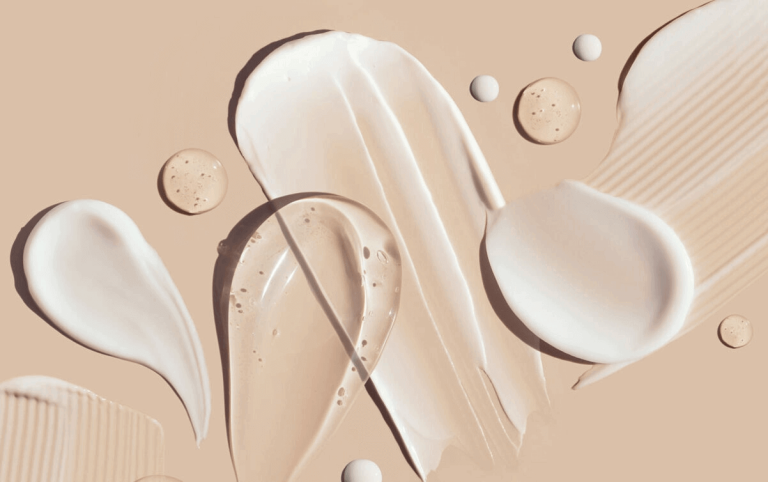How it works:
Share your skin goals and snap selfies
Your dermatology provider prescribes your formula
Apply nightly for happy, healthy skin
How it works:
How it works:
Share your skin goals and snap selfies
Your dermatology provider prescribes your formula
Apply nightly for happy, healthy skin
How it works:
5 skincare ingredients to mix for maximum skin benefits
5 skincare ingredient combinations with impressive potential benefits.



A good skincare routine should be harmonious. When you’re trying to achieve your skincare goals—whether that involves fighting and helping prevent acne, reducing the symptoms of rosacea, or working to help prevent early signs of aging—you want your products to work together. That’s why it’s important to understand which skincare ingredients can be mixed (and which ones might have additional benefits when paired together) and which shouldn’t go together.
Ultimately, we believe in simple skincare routines (washing with a cleanser, treating at night, finishing with a moisturizer, and using sunscreen during the day)—but keeping an eye on which ingredients are in those products can help you along your skincare journey. And if you ever have questions about which skincare ingredients are right for your skin, a Curology dermatology provider can help (more on that later). In the meantime, we’ll explain a few skincare ingredient combinations our experts recommend—and a few to avoid.
Are skincare ingredients really that important?
No matter what your skincare concerns or goals may be, one thing’s for sure: You want your skincare products to work for you! That’s why it’s important to choose products with effective ingredients, which can help improve skin conditions like acne or early signs of aging. Having a good understanding of what specific skincare ingredients will do can give you a better idea of the impact they may have on your skin.
For instance, if you see that a product contains hyaluronic acid, it will likely help to hydrate your skin. When you can read the ingredients on a product’s packaging, it’s easier to look past marketing and understand how a product may help get you closer to your skin goals.

Which ingredients can I mix?
The following is a list of some common skincare ingredients that you can mix along with their potential benefits. Before mixing, be sure to carefully read the ingredients and follow the instructions on the label.
Vitamin C and retinol
Vitamin C has many possible benefits. It may:
Reduce the appearance of wrinkles
Fade dark spots
Provide antioxidant protection from the sun’s ultraviolet rays
Activate collagen production to help make skin firmer
The other ingredient, retinol, can also:
Reduce the appearance of wrinkles
Fade dark spots
Improve skin texture
Soften fine lines
When you combine these two ingredients, it may reduce some of the skin changes¹ associated with signs of aging.
Hyaluronic acid and vitamin C
For dry and cracked skin, hyaluronic acid can be a good addition to your skincare routine. You can expect it to:
Draw moisture into the skin and retain it²
Improve skin elasticity and firmness
Promote smooth skin
This powerful combination can hydrate skin and lessen the appearance of early signs of aging.
Salicylic acid and hyaluronic acid
Salicylic acid, a beta hydroxy acid, can help fight acne through exfoliation. It helps to:
Smooth skin
Unclog pores
Give the illusion of smaller pore size³
Combining it with hyaluronic acid can help to maintain moisture in your skin while exfoliating.
Retinol and niacinamide
Not only will you get the effects of retinol discussed above, but you’ll also get the benefits of niacinamide, which may include:
Improves moisture barrier function
Improves skin elasticity
Reduce wrinkles and fine lines
Reduce dark spots⁴
Incorporating these two ingredients may help reduce signs of aging.
Niacinamide and vitamin C
These two ingredients may help brighten skin and add a layer of protection from environmental pollutants. This can be especially great for those who spend a lot of time outdoors.
Which skincare ingredients shouldn't be mixed?
While some combinations of skincare ingredients can be helpful in your skincare journey, some may prove harmful to your skin or ineffective. Keep in mind that some of these combinations are okay if you have already used one of the ingredients for a while and introduce the other under the guidance of your licensed dermatology provider or a similarly trusted medical professional.
Here is a list of skincare ingredient combinations that experts generally recommend avoiding, due to potential negative side effects such as irritation:
Retinol and alpha hydroxy acids
Irritated skin may occur when using retinol. Since alpha hydroxy acids are great for exfoliation, using it at the same time as retinol might result in dry skin.
Salicylic acid and benzoyl peroxide
Using benzoyl peroxide with salicylic acid may cause irritating side effects. Salicylic acid is found in many skincare products, so be careful when using benzoyl peroxide on its own to make sure you’re not accidentally mixing the two.
Alpha hydroxy acids and vitamin C
To avoid possible irritation, try spacing out the timing of applying the two, by using one in your morning routine and the other at night.
Benzoyl peroxide and retinol
Avoid potential skin irritation by using them at different times, like the combination above.
Retinol and salicylic acid
For some, mixing these ingredients could cause skin irritation. Try applying them separately and at different times.

Take your skincare routine to the next level
With any new skincare journey, it's always good to have a coach in your corner to help guide your way. That’s where we come in. Curology was started back in 2014 by a board-certified dermatologist who wanted to increase access to quality skincare.
Get your personalized skincare routine with Curology
Get your personalized skincare routine with Curology


After signing up, an in-house licensed dermatology provider will review photos of your skin, analyze your responses to a few medical questions, and then prescribe a personalized prescription formula—made with a mix of ingredients that can help you reach your skincare goals. Start your trial now*.
FAQs
According to Elise Griffin, PA-C (Physician Assistant, Certified), a licensed dermatology provider at Curology, you should combine ingredients by layering them. Try to go from the thinnest product to the thickest. This helps to make sure each product absorbs well.
Niacinamide is a powerful ingredient that generally works well with most ingredients. It’s an antioxidant and helps to improve skin barrier function. In some cases, you may have to use niacinamide and other ingredients separately.
Niacinamide can reduce inflammation and is generally fine to use daily.
P.S. We did the homework, so you don’t have to:
Mukherjee, S., et al. Retinoids in the treatment of skin aging: An overview of clinical efficacy and safety. Clinical Interventions in Aging. (December 2006).
Jegasothy, S.M., et al. Efficacy of a New Topical Nano-hyaluronic Acid in Humans. J Clin Aesthet Dermatol. (March 2014).
Decker, A. and Graber, E.M. Over-the-counter Acne Treatments. J Clin Aesthet Dermatol. (May 2012).
Bissett, D.L., et al. Niacinamide: a B vitamin that improves aging facial skin appearance. Dermatol Surg. (July 2005).
Erin Pate is a board-certified Family Nurse Practitioner at Curology. She earned her Masters of Science in Nursing at Florida Atlantic University in Boca Raton, FL.
* Subject to consultation. Subscription is required. Results may vary.

Curology Team

Erin Pate, NP-C
Related Articles
Is my hairline receding? The signs and stages, explainedFinasteride vs. minoxidil: Which hair loss treatment is right for you?How to remove makeup without makeup remover wipesThe complete guide to face cleansers for every skin typeSkincare tips for dry skin, according to dermatology providersPopular Articles
Ask Curology: Is my cold breaking me out?Slugging: The dermatologist-approved skincare hack going viral on TikTokTretinoin vs retinol: What’s the difference?How to create a self-care routine that actually sticksYour 2023 skincare horoscopeTry prescription skincare
Get routine essentials

Good skin days ahead
- Breakouts
- Redness
- Fine lines
- Dark spots
- Hair thinning